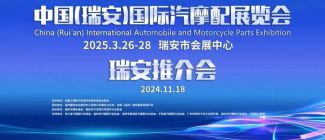Scan QRCode


The sudden black swan, completely disrupted the rhythm of the car companies.Plant closings, layoffs, pay cuts, budget cuts...It became the law of survival to use every means to increase income and reduce expenditure, but it was soon discovered that it had only just begun.
They are retreating from areas where the future is not yet in sight.BMW ag and Mercedes-Benz parent Daimler AG will temporarily stop working together to develop the next generation of autonomous driving technology, citing a lack of money and the prospect of autonomous driving becoming profitable in the near future, the company said in a statement.
They retreat from markets where uncertainty is soaring.At the end of May, it was confirmed that Nissan was closing a plant in Barcelona, Spain, which meant that its plan to cut production capacity by 20% was already under way.Meanwhile, Japan's Asahi Shimbun reported that Nissan decided to pull out of South Korea after 16 years in August.
They are retreating from redundant manpower and lavish expenditure.In June, BMW announced 6,000 job cuts and Daimler announced 10,000 job cuts by the end of 2025, slashing administrative costs and expenses.The move comes on the heels of layoffs announced by several auto companies, which have led to countless job losses.
Face the risk of the global supply chain disruptions, the White House chief economic adviser larry libraries have publicly called for American companies in China even evacuated, meti also launched against plague economic rescue plan, also devoted to 243.5 billion yen (RMB 15.8 billion) funds, to help Japanese manufacturers will line out of China.
Whether they are pulling out of China or shrinking operations in other countries, belt-tightening carmakers are pointing in a common direction - deglobalisation.
"The global auto market has seen a sharp decline in sales due to the epidemic. In order to increase earnings, auto companies will actively shrink their battle lines to reduce costs and stabilize earnings."Cui Dongshu, secretary-general of the Federation, told ID: Auto-Time that due to the long-term uncertainty of the global epidemic, the operation of auto companies will gradually take on the characteristics of regionalization and plate segmentation.
Budget cuts, auto companies' strategic "retreat"
There is no denying that the automobile industry, which has a history of more than one hundred years, is the beneficiary of global economic integration. In order to pursue economic scale and save costs, automobile companies are also more willing to develop internationally.However, with the arrival of the epidemic, expansion has become extravagant hopes, and survival has become the first priority for car companies to survive.
"Nissan needs a massive restructuring to get the company back on track."For Nissan CEO Makoto Uchida, the company has expanded too quickly in too many markets in pursuit of sales targets it has never met."To overcome this situation, you have to admit the mistake and correct the direction."
The price of "reorienting" is super slimming.Nissan plans to reduce capacity to 6m vehicles by 2023 by cutting fixed expenses by Y300bn, closing its Factory in Barcelona and making Thailand its sole production base in the ASEAN region, according to its "medium-term business plan".

Source: Pixabay
After capacity reduction, Nissan focuses its market on core markets such as Japan, China and North America, while non-core markets such as Europe, Latin America and ASEAN. Nissan will choose to advance and retreat on the basis of renaut-Nissan-Mitsubishi Alliance, and will not rule out gradually exiting these non-core markets in the future.
Nissan is teetering on the edge of deglobalisation, while companies such as Renault, GENERAL Motors and even Mercedes are tightening their belts.
On April 14, Dongfeng Motor Group Co., Ltd. announced that Renault intends to transfer its 50% stake of Dongfeng Renault to Dongfeng Automobile, and Dongfeng Renault will stop business activities related to The Renault brand, which means that Dongfeng Renault has officially become history in China.Under its latest strategy in China, Renault will give up its petrol-fuelled passenger car business altogether and focus on light commercial vehicles and electric vehicles.
Renault recently unveiled its latest restructuring plan, saying it would cut €2bn in costs over the next three years and shed 14,600 jobs worldwide, with a plan to reduce global capacity to 3.3m vehicles by 2024 from 4m in 2019.Renault will focus on areas such as minivans or electric cars in the future, focusing on Markets such as Europe, Russia and South America, and ending production expansion plans in countries such as Romania.
Strategic contraction has become the established law of the winter.Mr Konlinson, Daimler's chairman, made it clear that the company would cut about 10 per cent of management positions and streamline management in finance, production and development.Jaguar Land Rover has also raised its cost-cutting target to £5bn and plans to cut 1,000 jobs, while Nissan, Toyota and Honda have announced more than 30,000 job cuts in their US operations.
As carmakers shrink around the world, "global cars" are becoming a thing of the past.
On June 15, Japanese media reported that Honda Motor Co. decided to suspend production of its Civic and GRACE models in Japan in August and July, respectively.That means the two models will no longer be global and will become specials in some regions, including North America and China, where the Civic is currently popular.
Electrek reported that Mercedes has cancelled plans to develop a passenger hydrogen fuel-cell car and discontinued its current only hydrogen fuel-cell model, the GLC F-Cell, because it costs almost twice as much to make as an electric car.The convertible and coupe versions of the S-class, a large luxury car, will be axed, and the future of the B-class is uncertain, the Handelsblaise newspaper reported.
"The idea of one car for the global market is out of date."The chairman of BMW Group Said at the BMW group 2020 annual financial results press conference.In his view, the auto industry is transforming, new requirements are emerging and becoming stricter, and consumers have an absolute "right to choose."
Gm's shrinking strategy is more aggressive than cutting capacity and scrapping some models.Since the beginning of this year, Great Wall Motor has announced the acquisition of GM's Plants in India and Thailand from GENERAL Motors, which also means that GM withdrew from the Indian and Thai markets.Meanwhile, GM said in February that it would scale back sales, design and engineering operations in Australia and New Zealand and plan to eliminate its Holden brand there by the end of 2021.

Source: Pexels
Under the crisis, auto companies have to give up the non-profit market and focus resources on more important markets. "strategic contraction" has become an inevitable choice.
The dividends of globalisation are fading
Whether they are laying off workers, cutting wages or shrinking battle lines, the lack of money is a common problem for these auto companies.
Reuters reported that intesa Sanpaolo's board approved a $6.3 billion loan from Fiat Chrysler (FCA) guaranteed by the Italian government.France's PSA Peugeot Citroen has requested a total of 6 billion euros in loans to deal with the outbreak, and GM is in talks with Banks to raise a new $2 billion loan.
The world's carmakers and 50 suppliers had $72.1bn of new debt on their books between the beginning of March and May 22, including $19.7bn of fixed-term bonds and $52.4bn of revolving credit loans in use, according to AlixPartners, the global consultancy.
"Automakers need to carefully and objectively review their capital allocation strategies, carefully weighing the impact of each item and expense on their cash flow and profitability."'Automakers are already in a worse financial position than they were during the financial crisis,' said Dr. Stephen Dyer, managing director of AlixPartners and head of the auto industry in Greater China.
At the other end of the trend is concern about over-reliance on global supply chains.
In February, when the epidemic hit hard, almost all Chinese auto parts manufacturers stopped production, and foreign auto companies were also affected.More than 80% of the core components of Korean automakers rely on Chinese manufacturers for wiring harness circuit boards. Due to the shortage of supply, many Local factories of Korean automakers such as Hyundai and Kia shut down. JLR even had to airlift Chinese parts to the UK to maintain production.
"The strength of the Chinese supply chain is not something that can be moved by anyone who wants to."Lenovo Group Chairman and CEO Yang Yuanqing bluntly at the two sessions, China's manufacturing industry is strong, can quickly resume work after the epidemic, coupled with complete supporting facilities, no country can replace this.
The fact is, even without the Chinese market, multinational car companies still show a trend of localised operations.While Mr. Toyoda hailed China as the most important market, he stuck to the principle of making at least three million cars a year in Japan.Today, Toyota still makes the most of its cars in Japan.Under the strategy of "America First", American automobile enterprises are more typical of strategic contraction. General Motors, Ford Motor and other Detroit giants are constantly shrinking their battle lines.
Gm, for example, has previously been the world's biggest carmaker, with Opel in Germany and Holden in Australia, and in 2004 bought Daewoo Motors, then South Korea's third-largest carmaker.The subprime crisis of 2008 was a turning point for GM, which subsequently sold off its brands and began to shrink the market.
As a "global liberalist", Li Shufu, chairman of Geely Holding Group, said frankly that 2020 will be a year when the process of global economic integration encounters great difficulties, and a year when two different concepts of economic "globalization" and "anti-globalization" will be further hedged.He says the hedging between the two ideas will continue for quite some time and will eventually find a balance.

Geely Holding Group has five core sub-groups source: Geely Auto official website
"Deglobalization has become a clear trend."With the reduction of labor costs in intelligent manufacturing, countries will appropriately reduce global supply in order to increase local employment, Cui told Future Automotive Daily.It also means that "the dividends of globalisation are now on the wane."
This also brings certain enlightenment to the overseas expansion of the autonomous vehicle enterprises."Independent brands should first do a good job of local operation, rather than blind overseas expansion."Cui dongshu said that under the trend of deglobalization, self-owned brands need to have the consciousness of establishing base areas and strengthen the construction of localization system to ensure that they can take root and germinate in overseas markets.
Although the auto industry cannot avoid the characteristics of globalization, but under the crisis of the epidemic, the strategic contraction of auto companies has become an indisputable fact.In this great wave of change, some people have to leave the field, some are still looking forward to the sun of tomorrow, although it is not known who can hold out until the end, but it is certain that the global auto industry is irreversibly redrawn.
AMS2024 Exhibition Guide | Comprehensive Exhibition Guide, Don't Miss the Exciting Events Online and Offline
Notice on Holding the Rui'an Promotion Conference for the 2025 China (Rui'an) International Automobile and Motorcycle Parts Exhibition
On September 5th, we invite you to join us at the Wenzhou Auto Parts Exhibition on a journey to trace the origin of the Auto Parts City, as per the invitation from the purchaser!
Hot Booking | AAPEX 2024- Professional Exhibition Channel for Entering the North American Auto Parts Market
The wind is just right, Qianchuan Hui! Looking forward to working with you at the 2024 Wenzhou Auto Parts Exhibition and composing a new chapter!
Live up to Shaohua | Wenzhou Auto Parts Exhibition, these wonderful moments are worth remembering!
Free support line!
Email Support!
Working Days/Hours!





